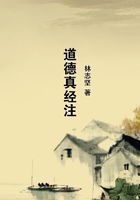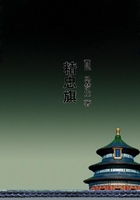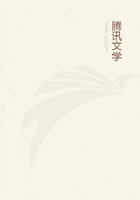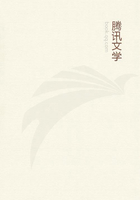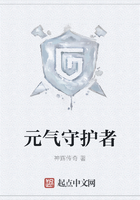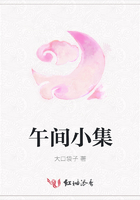"....the moral qualities that are required in the higher spheres of statesmanship [are not] those of a hero or a saint. Passionate earnestness and self-devotion, complete concentration of every faculty on an unselfish aim, uncalculating daring, a delicacy of conscience and a loftiness of aim far exceeding those of the average of men, are here likely to prove rather a hindrance than an assistance. The politician deals very largely with the superficial and the commonplace; his art is in a great measure that of skilful compromise, and in the conditions of modern life, the statesman is likely to succeed best who possesses secondary qualities to an unusual degree, who is in the closest intellectual and moral sympathy with the average of the intelligent men of his time, and who pursues common ideals with more than common ability.... Tact, business talent, knowledge of men, resolution, promptitude and sagacity in dealing with immediate emergencies, a character which lends itself easily to conciliation, diminishes friction and inspires confidence, are especially needed, and they are more likely to be found among shrewd and enlightened men of the world than among men of great original genius or of an heroic type of character."
The American people should feel profoundly grateful that the greatest American statesman since Washington, the statesman who in this absolutely democratic republic succeeded best, was the very man who actually combined the two sets of qualities which the historian thus puts in antithesis. Abraham Lincoln, the rail-splitter, the Western country lawyer, was one of the shrewdest and most enlightened men of the world, and he had all the practical qualities which enable such a man to guide his countrymen; and yet he was also a genius of the heroic type, a leader who rose level to the greatest crisis through which this nation or any other nation had to pass in the nineteenth century.
THEODORE ROOSEVELT
SAGAMORE HILL, OYSTER BAY, N. Y., September 22, 1905.
INTRODUCTORY NOTE
"I have endured," wrote Lincoln not long before his death, "a great deal of ridicule without much malice, and have received a great deal of kindness not quite free from ridicule." On Easter Day, 1865, the world knew how little this ridicule, how much this kindness, had really signified. Thereafter, Lincoln the man became Lincoln the hero, year by year more heroic, until to-day, with the swift passing of those who knew him, his figure grows ever dimmer, less real. This should not be. For Lincoln the man, patient, wise, set in a high resolve, is worth far more than Lincoln the hero, vaguely glorious. Invaluable is the example of the man, intangible that of the hero.
And, though it is not for us, as for those who in awed stillness listened at Gettysburg with inspired perception, to know Abraham Lincoln, yet there is for us another way whereby we may attain such knowledge--through his words--uttered in all sincerity to those who loved or hated him. Cold, unsatisfying they may seem, these printed words, while we can yet speak with those who knew him, and look into eyes that once looked into his. But in truth it is here that we find his simple greatness, his great simplicity, and though no man tried less so to show his power, no man has so shown it more clearly.
Thus these writings of Abraham Lincoln are associated with those of Washington, Hamilton, Franklin, and of the other "Founders of the Republic," not that Lincoln should become still more of the past, but, rather, that he with them should become still more of the present. However faint and mythical may grow the story of that Great Struggle, the leader, Lincoln, at least should remain a real, living American. No matter how clearly, how directly, Lincoln has shown himself in his writings, we yet should not forget those men whose minds, from their various view-points, have illumined for us his character. As this nation owes a great debt to Lincoln, so, also, Lincoln's memory owes a great debt to a nation which, as no other nation could have done, has been able to appreciate his full worth. Among the many who have brought about this appreciation, those only whose estimates have been placed in these volumes may be mentioned here. To President Roosevelt, to Mr. Schurz and to Mr. Choate, the editor, for himself, for the publishers, and on behalf of the readers, wishes to offer his sincere acknowledgments.
Thanks are also due, for valuable and sympathetic assistance rendered in the preparation of this work, to Mr. Gilbert A.
Tracy, of Putnam, Conn., Major William H. Lambert, of Philadelphia, and Mr. C. F. Gunther, of Chicago, to the Chicago Historical Association and personally to its capable Secretary, Miss McIlvaine, to Major Henry S. Burrage, of Portland, Me., and to General Thomas J. Henderson, of Illinois.
For various courtesies received, the editor is furthermore indebted to the Librarian of the Library of Congress; to Messrs.
McClure, Phillips & Co., D. Appleton & Co., Macmillan & Co., Dodd, Mead & Co., and Harper Brothers, of New York; to Houghton, Mifflin & Co., Dana, Estes & Co., and L. C. Page & Co., of Boston; to A. C. McClurg & Co., of Chicago; to The Robert Clarke Co., of Cincinnati, and to the J. B. Lippincott Co., of Philadelphia.
It is hardly necessary to add that every effort has been made by the editor to bring into these volumes whatever material may there properly belong, material much of which is widely scattered in public libraries and in private collections. He has been fortunate in securing certain interesting correspondence and papers which had not before come into print in book form.
Information concerning some of these papers had reached him too late to enable the papers to find place in their proper chronological order in the set. Rather, however, than not to present these papers to the readers they have been included in the seventh volume of the set, which concludes the " Writings."
October, 1905, A. B. L.
ABRAHAM LINCOLN:
AN ESSAY BY CARL SHURZ

